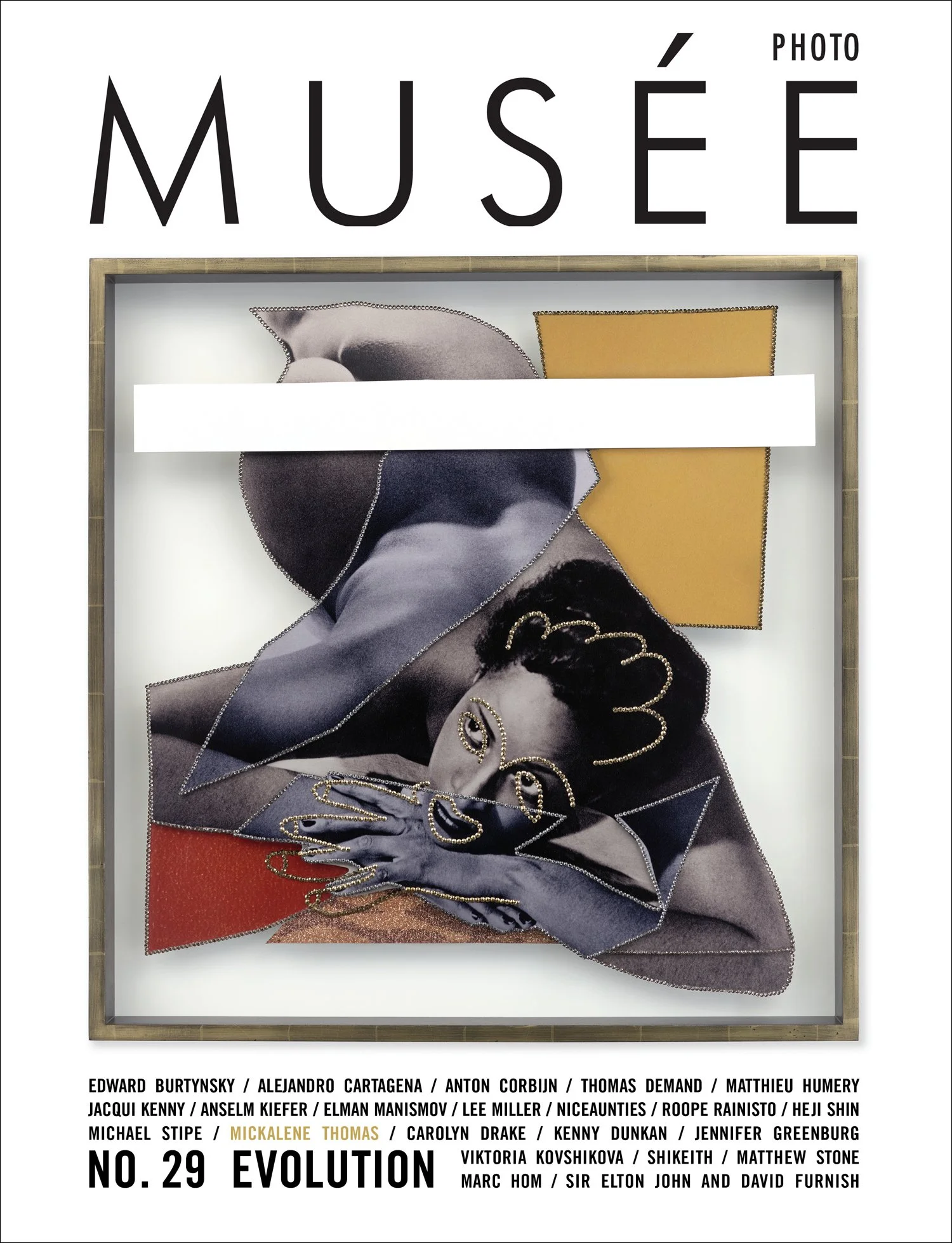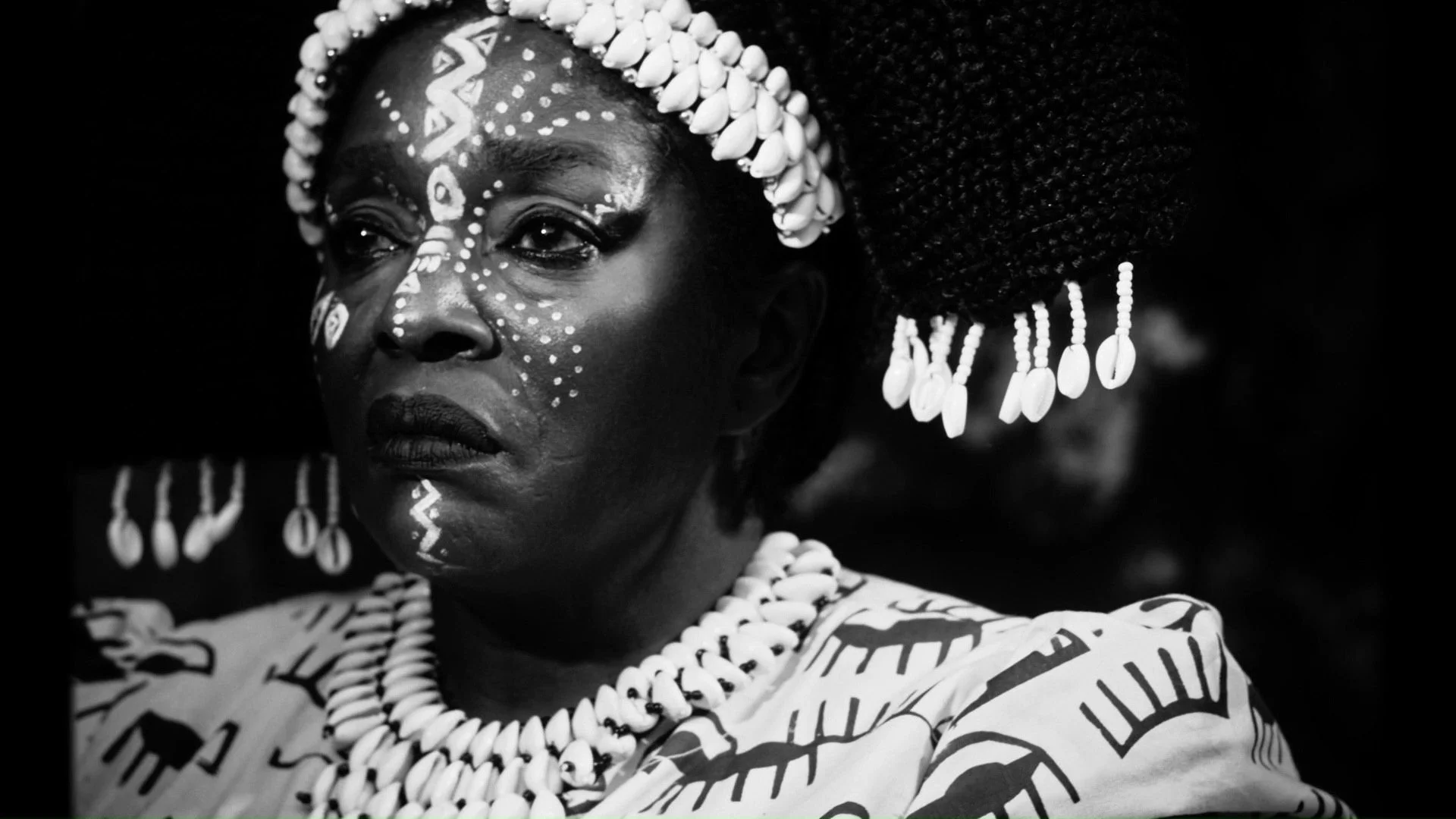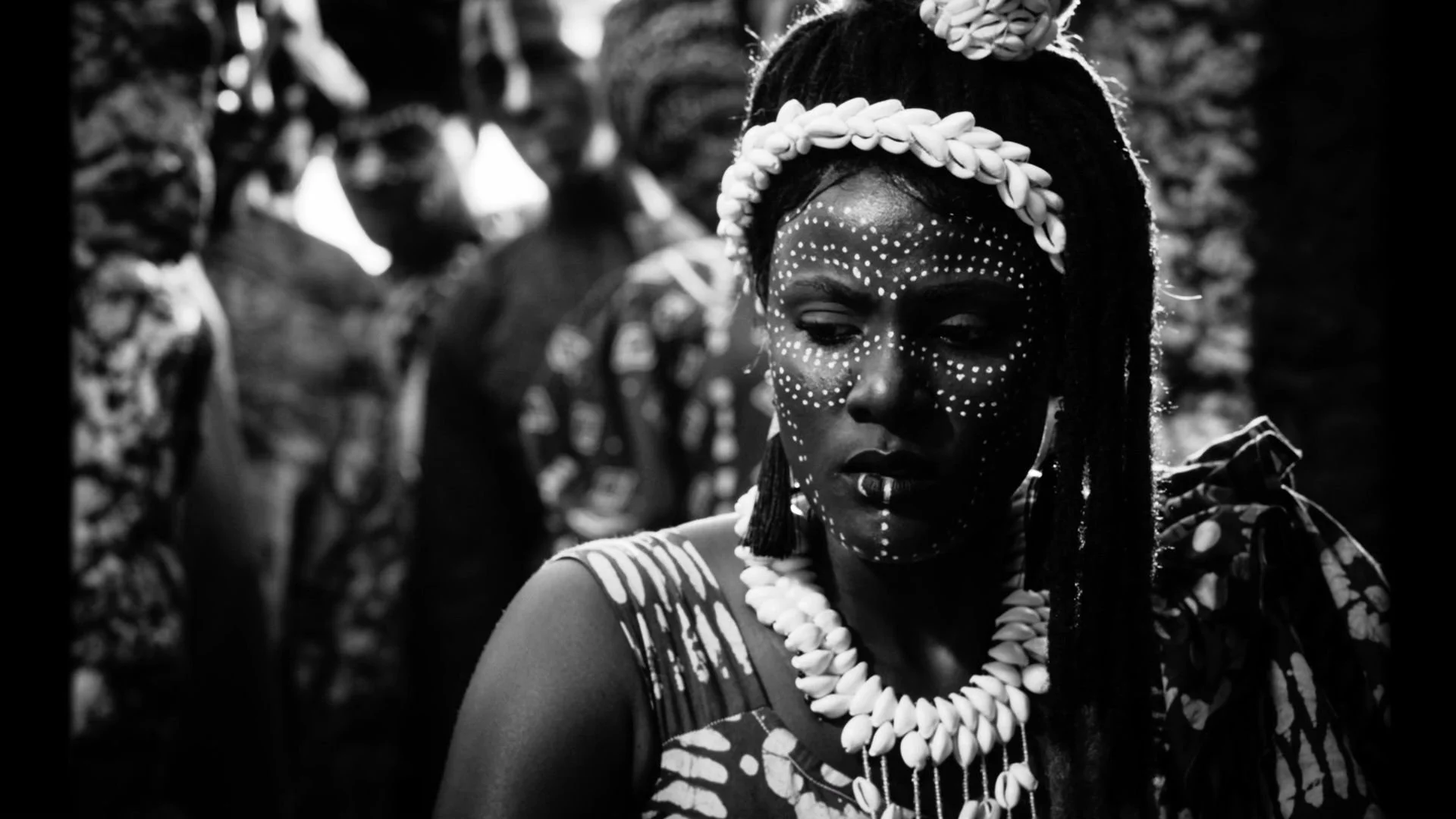Mami Wata (2023) | Dir. C.J. “Fiery” Obasi
Mama EFE (Rita Edochie) in C.J. “Fiery” Obasi’s MAMI WATA. Photo by Lílis Soares Courtesy of Dekanalog.
Text: Belle McIntyre
The stunning beauty of this Nigerian film, based on West African folklore, made it’s debut at Sundance. It takes place in a primitive isolated village called Ily where the villagers revere the deity known as Mami Wata, who is associated with water, beauty, and wealth. The high contrast black and white cinematography is dazzling with its inky blacks and vivid whites used to depict the characters extraordinary face painting, elaborate hairdos, ornaments and graphically printed costumes. But the film goes beyond ethnological fascination with a compelling and universal human story, involving religious and cultural beliefs, tradition versus modernization, matriarchal versus patriarchal governance.
Prisca (Evelyne Ily) in C.J. “Fiery” Obasi’s MAMI WATA. Photo by Lílis Soares Courtesy of Dekanalog.
Mami Wata is accessed by the priestess Mama Efe who serves as the intermediary and expects and receives monthly contributions from the villagers. As the film opens, Mama Efe is presiding over a sick young boy with rituals, chanting, potions and prayers. When the boy dies, there is general discontent and a questioning of the power of Mama Efe, when she tries to explain that death is inevitable and merely a return to origins. They are not buying it.
Ero (Tough Bone, l.) and Prisca (Evelyne Ily, r.) in C.J. “Fiery” Obasi’s MAMI WATA. Photo by Lílis Soares Courtesy of Dekanalog.
When the men begin to actively stir up dissatisfaction it sets off a movement of questioning why they cannot have electricity, schools or hospitals. Around this time of internal strife a mysterious stranger washes up on the shore named Jasper. Mama Efe and her adopted daughter Prisca take him into their care and nurse him back to health. Prisca and Jasper are very attracted to each other it seems and she encourages him to stay. But nothing is as it seems. As Jasper integrates himself into the village life, he shifts his allegiances and aligns himself with the rebellious men. In fact, he becomes their de facto leader and urges them to depose Mama Efe. Worse yet, he takes the contributions for Mama Efe and buys guns. The feckless rebels become crazed with power and prove that they cannot be trusted to govern the village.
Mami Wata (Evelyne Ily) in C.J. “Fiery” Obasi’s MAMI WATA. Photo by Lílis Soares Courtesy of Dekanalog.
The logical intermediary after the deposition of Mama Efe is her daughter Zinwe who has left the village after ideological disagreements with her mother. This leaves Prisca to somehow wrest the power from the turncoat, Jasper and restore peace. Things get very complicated and Zinwe comes back under Prisca’s protection. Jasper is banished and something fragile and harmonious is established. The bigger questions about the future of the village and its inhabitants are not answered. But, that is not a requirement of a folktale. And this is a beautiful one. The actors, art direction and music are superb and indelible.











